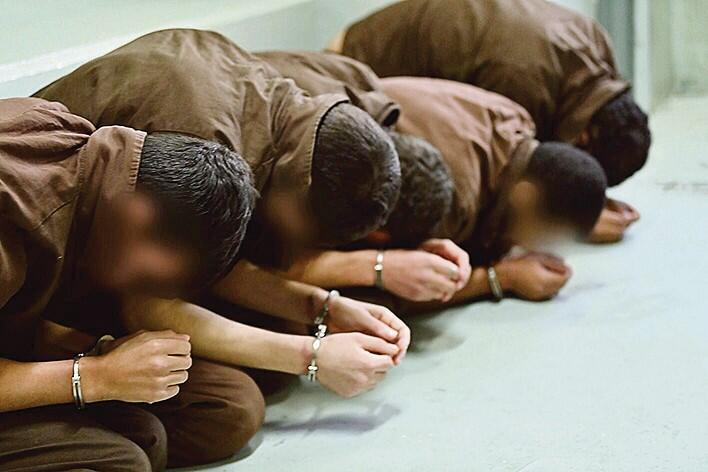Getting your Trinity Audio player ready...
The formation of indictments against 22 Nukhba terrorists who took part in the Nir Oz massacre isn't just a legal step, nor is the future filing of indictments against hundreds of terrorists, as part of the unified "7.10 case." These lawsuits are much more than that. They are dramatic events with historical significance. One that exceeds the legal field and shapes the collective memory, Israeli and global, regarding the "Black Sabbath."
They will have educational, social and cultural aspects. This is the nature of canonical trials. The words of the prosecutors are intended primarily for the public. The testimonies are directed outward. The judges' decisions shape a generation. They affect the genetic code of a nation.
In his book, "The Eichmann Trial in Jerusalem," Gideon Hausner, the attorney general, and chief prosecutor in the case, notes that he also saw his role as one that was supposed to "promote, through the trial, awareness of the Holocaust" and place it "in the series of historical events that the world must remember." And how right he was.
In 1961, the Holocaust was less known and more denied. The Eichmann trial, however, changed the world order. It led to a political and media awakening in the United States. In Germany, it accelerated a deep social reckoning. Millions around the globe were exposed to the "Final Solution." Here, too, the Holocaust became a topic of greater discussion in the education system, on the street and in almost every home.
The Nukhba trials could have a similar impact, as they will shape a significant part of the perception of October 7. In Israel, they will contribute, even if only slightly, to closure for some of the victims' families and the injured.
Without a state commission of inquiry, they will help to consolidate the factual picture. Internationally, they will make the Israeli narrative accessible and provide an authoritative explanation regarding the sequence of events that will remain with us for years. And the timing of things has a powerful significance as well.
In his book, "The Eichmann Trial in Jerusalem," Gideon Hausner, the attorney general, and chief prosecutor in the case, notes that he also saw his role as one that was supposed to "promote, through the trial, awareness of the Holocaust" and place it "in the series of historical events that the world must remember."
Then, the Eichmann trial was held 16 years after the war. Yad Vashem, as a commemorative institution, was already operating. Now, the disaster is still happening. It is still with us. It may seem like a trial, but it is a perception accelerator. In a certain sense, this is the Eichmann trial on steroids.
And for such an event, it is better to be prepared. Alongside the prosecution team, a public perception team must operate and consider those historical aspects. It must identify opportunities in the trial to shape the Israeli and Jewish story not only in the face of current public diplomacy challenges but for generations to come.
Get the Ynetnews app on your smartphone: Google Play: https://bit.ly/4eJ37pE | Apple App Store: https://bit.ly/3ZL7iNv
The identity of the witnesses, the types of evidence, and the expressions that the prosecutors will use – all have a perceptual importance in a future perspective. For example, the term "The Desk Murderer," which Hausner used, not only convicted the villain. It humanized the evil and illustrated that the Holocaust was committed by ordinary people who chose to do it.
The decisions about whether to put the terrorists in glass booths, the trial's location or its translated international broadcast are also nontechnical ones. They are of unparalleled essence and can shape the perception of October 7 in various venues.
 Gadi Ezra Photo: Avigail Uzi
Gadi Ezra Photo: Avigail UziIn the current era, the responsibility for such issues must not be left solely to those entrusted with the legal task. Their work is important enough, and their hands are full. Perceptually, the Nukhba trials are a turning point in time. They are the public's trial before they are a criminal trial.
And in a week like this, between Holocaust, Memorial and Independence Days – they are a connection between the most Israeli days there are and the most Jewish action there is - the pursuit of justice. That justice must not only be pursued but also established.
- Gadi Ezra is former director of Israel’s National Public Diplomacy Unit and author of "11 Days in Gaza"


